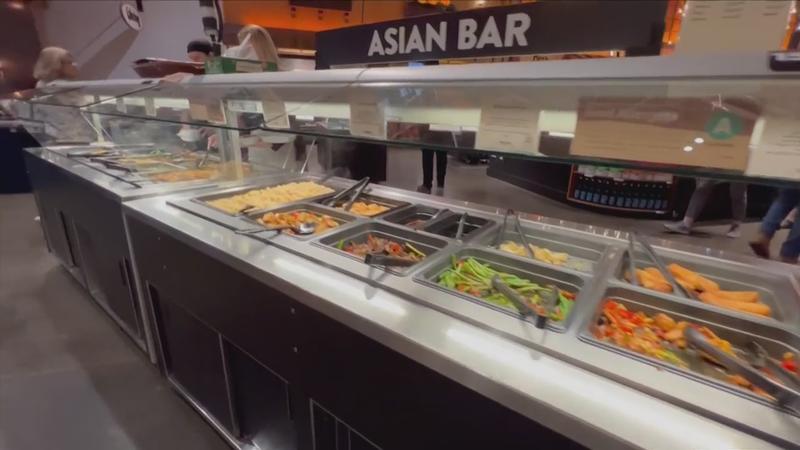Good Question: An added tax for dining in?
ROCHESTER, N.Y. (WHEC) — Here’s a good question about paying for food. So many of us are always on the go and in a rush which means it’s easier to just order something from a to-go menu or run into the grocery store to grab something to eat and head out real quick.
But does that make a difference in what it costs you?
Scott reached out after a recent trip to a grocery store and asked:
“When going through the self-checkouts only at the side entrance it will ask if you are dining in. If you say yes it adds a tax to your bill. Mine would’ve been $.12 for a sub sandwich and chips. When I questioned the woman working she said if you say no they don’t charge you the tax. This isn’t a restaurant with any sort of service, it’s the same tables they have always had. The only difference is now you check yourself out and they want to charge you a tax to sit there?"
Here’s the answer. There’s a page on the state tax website titled "Sales by Restaurants, Taverns, and Similar Establishments.” It states “When food or drink is sold for on-premises consumption, it is taxable, whether it is sold hot or cold. On-premises consumption includes consumption at:
- Restaurants and diners
- Tables in a food court at a mall
- Picnic tables located outside a drive-in restaurant.”
If you’re taking the food with you and it’s hot, either prepared for you or it was kept warm under a heating lamp like a hot bar, you have to pay more. That total would include the state and local tax. What’s exempt from the sales tax? Products sold unheated.
The state has this detailed list with examples to help. Unless sold for resale, when food and drink is sold by a restaurant to-go, it is taxable unless:
- The food (other than sandwiches) or drink is being sold unheated
- It is being sold in the same way (in the same form, condition, quantities, and packaging) you would normally find it in a supermarket or grocery store.
Example: A customer comes into a deli and orders a sandwich to go. In addition to the sandwich, the customer purchases a bottle of soda and a bag of pretzels. In this sale, the sandwich and the soda would both be subject to sales tax. You do not have to collect sales tax on the bag of pretzels because it is sold in the same form, condition, quantity, and packaging as it would normally be sold at a grocery store.

Example: Three customers enter a bagel shop. Customer #1 orders a dozen bagels to go. The employee puts the bagels in a bag and the customer proceeds to the checkout. The sale of a dozen bagels for off-premises consumption is not taxable.
Customer #2 orders a plain bagel and a cup of coffee to eat at one of the tables located within the bagel shop. The sale of the bagel and coffee is taxable because the sale is made for on-premises consumption.
Customer #3 orders a toasted bagel with cream cheese and a cup of iced coffee to go. The bagel is prepared as ordered and put into a bag for the customer. The coffee is poured into a cup and topped with a lid. Both the coffee and the bagel are taxable as restaurant food even though the food and beverage will not be consumed within the bagel shop.

